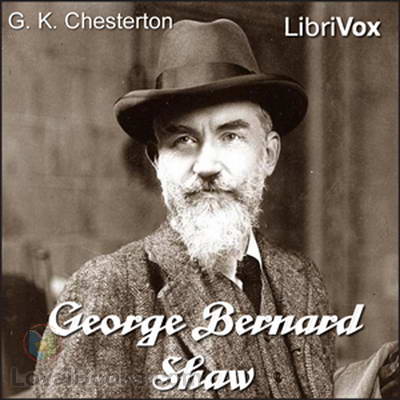George Bernard Shaw |
|---|

In this thorough and insightful biography, G. K. Chesterton delves into the life and works of the legendary playwright and critic George Bernard Shaw. With a keen eye for detail and a deep understanding of Shaw's complex personality, Chesterton paints a vivid portrait of a man who was both a brilliant thinker and a controversial figure.
Chesterton explores Shaw's early years, his struggles as a playwright, and his enduring legacy as a leading voice in the world of literature and theater. He skillfully navigates through Shaw's many contradictions, showing how his sharp wit and radical ideas often clashed with the societal norms of his time.
What I found most compelling about this biography was Chesterton's ability to capture Shaw's essence as a man of contradictions - a passionate advocate for social change who also embraced his own eccentricities with unabashed confidence. Through Chesterton's words, Shaw emerges as a complex and deeply human figure, full of both brilliance and flaws.
Overall, George Bernard Shaw by G. K. Chesterton is a compelling read for anyone interested in the life and work of one of the most influential figures in literature and theater. Chesterton's insight and eloquence make this biography a must-read for fans of Shaw and those looking to gain a deeper understanding of his lasting impact on the world. Book Description: Chesterton and Shaw were famous friends and enjoyed their arguments and discussions. Although rarely in agreement, they both maintained good-will towards and respect for each other. However, in his writing, Chesterton expressed himself very plainly on where they differed and why. In Heretics he writes of Shaw: “After belabouring a great many people for a great many years for being unprogressive, Mr. Shaw has discovered, with characteristic sense, that it is very doubtful whether any existing human being with two legs can be progressive at all. Having come to doubt whether humanity can be combined with progress, most people, easily pleased, would have elected to abandon progress and remain with humanity. Mr. Shaw, not being easily pleased, decides to throw over humanity with all its limitations and go in for progress for its own sake. If man, as we know him, is incapable of the philosophy of progress, Mr. Shaw asks, not for a new kind of philosophy, but for a new kind of man. It is rather as if a nurse had tried a rather bitter food for some years on a baby, and on discovering that it was not suitable, should not throw away the food and ask for a new food, but throw the baby out of window, and ask for a new baby.” Shaw represented the new school of thought, humanism, which was rising at the time. Chesterton’s views, on the other hand, became increasingly more focused towards the church. In Orthodoxy he writes: “The worship of will is the negation of will. . . If Mr. Bernard Shaw comes up to me and says, “Will something,” that is tantamount to saying, “I do not mind what you will,” and that is tantamount to saying, “I have no will in the matter.” You cannot admire will in general, because the essence of will is that it is particular. |
| Genres for this book |
|---|
| Biography |
| Non-fiction |
| Literature |
| Link related to this book |
|---|
| Wikipedia – G. K. Chesterton |
| eBook Downloads | |
|---|---|
|
ePUB eBook • iBooks for iPhone and iPad • Nook • Sony Reader |
Kindle eBook • Mobi file format for Kindle |
|
Read eBook • Load eBook in browser |
Text File eBook • Computers • Windows • Mac |
| Review this book |
|---|